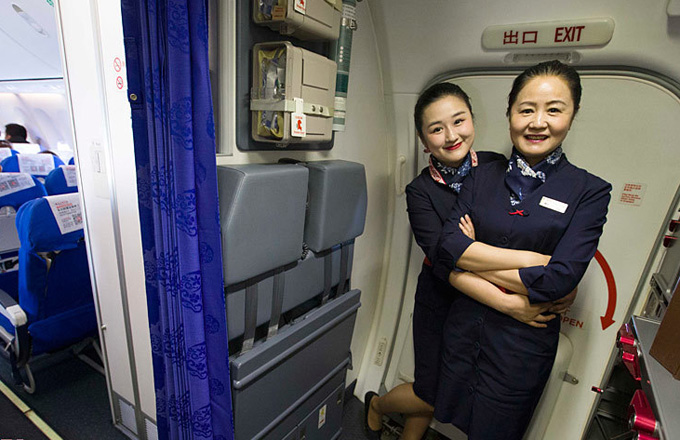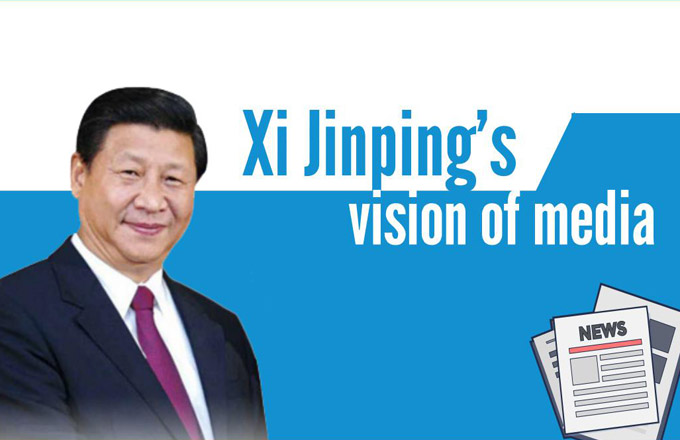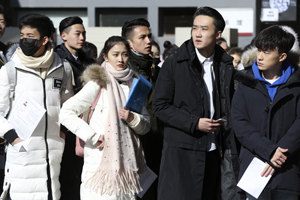Xi's speech sparked reflection
 |
|
Xiao Yan (right), a reporter from Xinhua News Agency, interviews a migrant worker on a train heading for Shanghai earlier this month. [Photo/Xinhua] |
One year later, president's words continue to resonate with news organizations
Following President Xi Jinping's speech last year on the principles of the Communist Party of China's media and publicity work, the country's major media outlets recently published articles highlighting the changes they have made to news reporting.
On Feb 19 last year, Xi, who is also general secretary of the CPC Central Committee, visited People's Daily, Xinhua News Agency and China Central Television before presiding over a symposium on news reporting and public opinion.
During the symposium, Xi ordered all news media outlets run by the CPC and the Chinese government to strictly follow the Party's leadership and focus on "positive reporting".
According to Xi, the Party's media work should unite and guide the general public, serve the country's overall interests, tell right from wrong, instill confidence and connect China with the world.
Calling for innovative concepts, content and methods, Xi told media groups to make use of new media's edge in publicity; amplify their voices on the international stage; tell stories about China effectively; and build flagship media with a strong global influence.
On Sunday, People's Daily published an article noting that the past year has seen great changes across all media outlets thanks to the "fresh vitality" engendered by Xi's speech.
The credibility of mainstream media has improved markedly, it said, adding that it has become more influential and that content is more appealing and persuasive.
The article praised the "reasoned voice" of media outlets when covering issues of public concern, such as employment, health services, education and food safety. It also lauded the "creativity and innovation" of online and new media content.
On Friday, a Xinhua article said the media's work in the past year has generated positive energy that has motivated the public to work toward realizing the Chinese dream of the great rejuvenation of the nation. It added that the Chinese media's international communication skills should be honed so stories about China are told effectively.
One of the most high-profile moves to this end has been the rebranding of CCTV's news output as China Global Television Network at the end of last year.
According to CGTN statistics, its content is accessed by about 400 million people worldwide.
Last year, more than 700 People's Daily articles were translated into more than 20 languages and published by major international media outlets.
In the past year, Xinhua has published 4,500 stories a day for overseas audiences, with more than 100 commentaries on international issues carried by mainstream Western media.
Developments were also made in the promotion of overseas social networking platforms operated by leading Chinese media.
Accounts run by People's Daily attract about 35 million followers, while the figures for Xinhua and CCTV stand at about 23 million and 50 million respectively.
While visiting CCTV's multimedia division on Sunday, Liu Qibao, head of the CPC Central Committee's Publicity Department, encouraged all mainstream news providers to prioritize multimedia integration, helping to improve competitiveness and expand their reach.
Shi Anbin, a professor of journalism and communications at Tsinghua University in Beijing, said standards of news reporting and public opinion in China has risen along with the nation's growing strength and international status.


















